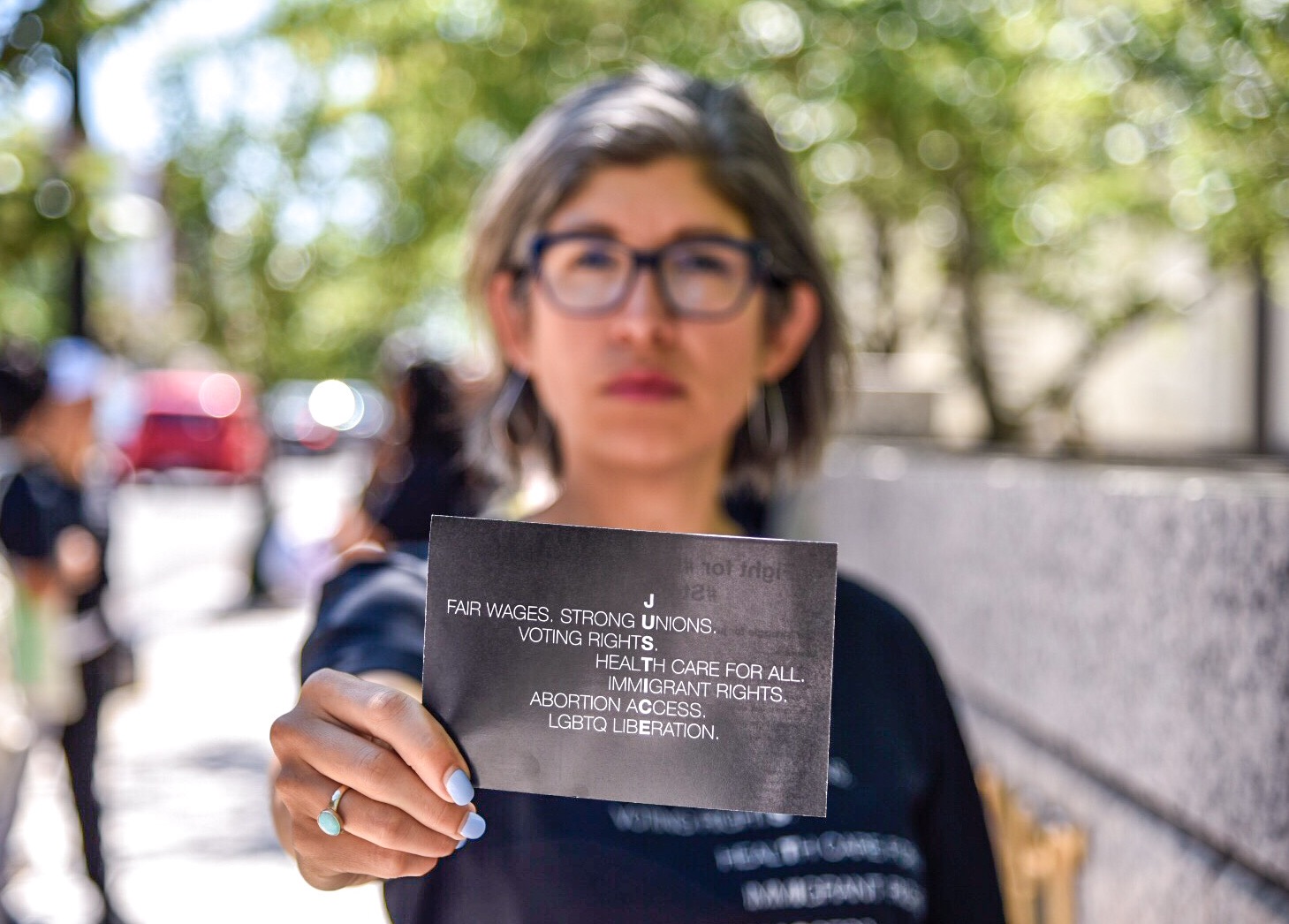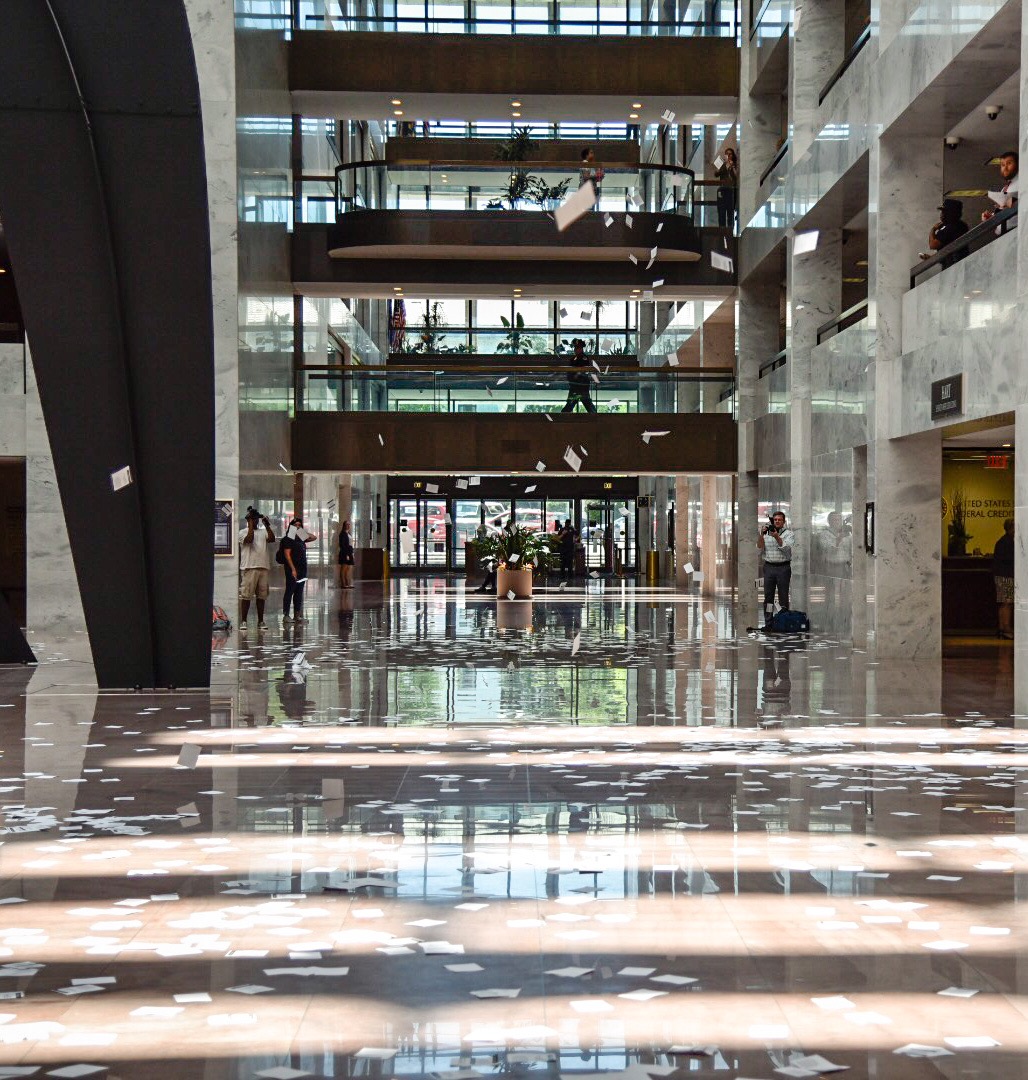WASHINGTON, D.C. — Dozens of activists from across the country visited Capitol Hill on Thursday, aiming to derail Brett Kavanaugh’s confirmation to the Supreme Court — but, this time, people of color representing multiple groups led the organizing.
The last week of June, when the Supreme Court ruled against abortion, Muslims, and workers’ rights, was hard on progressives, but devastating to people of color who are disproportionately or directly impacted, various activists told ThinkProgress. And a more conservative Supreme Court — in which Chief Justice John Roberts, who joined the majority in all three cases, is the swing vote — doesn’t just bode ill for liberal jurisprudence, but could further oppress people of color, particularly if they’re of multiple marginalized identities (like if they are queer, have a disability, or are immigrants), they said.
And that’s why activists of color are showing up.

The broader, national #StopKavanaugh campaign tends to highlight Democratic senators or big organizations that are mostly run by white people, like Planned Parenthood. So when activists with the reproductive justice group All Above All, the National Asian Pacific American Women’s Forum, the National LGBTQ Task Force, and Jobs with Justice met with senators and staged protests on Thursday, they provided a new face and fresh perspective to the movement.
“It’s really important for our groups to be here to talk about the intersectionality of issues that impact our lives,” said Sung Yeon, executive director with NAPAWF. “We are not just going to sit around and let other people do the work for us.”
People of color activists at the Senate demanding senators vote no to Brett kavanaugh. They are schooling folks in Dirksen how POCs will hurt with a more conservative SCOTUS. pic.twitter.com/pobHikU4EZ
— Amanda Michelle Gomez (@amanduhgomez) August 23, 2018
And they did the work. In the morning, organizers visited various senators’ offices, like Sens. Susan Collins (R-ME) and Lisa Murkowski (R-AK), who are purported swing votes. By the afternoon, they interrupted staffs’ lunch at the Dirksen Senate cafeteria with chanting and showered the floors of the Hart Senate building with hundreds of #StopKavanaugh flyers.

Activists provided additional insight to a conversation largely dominated by white folks. For example, queer people of color were present, spotlighting the risk of abortion access in the future. They weren’t there just as allies, but as queer people who need abortion access, as well — perhaps to the surprise of those who think the issue of reproductive justice exclusively affects straight women.
“We are not separate from people of color, we are not separate from the incarcerated rate, we are not separate from immigrants, we are not separate from people who need and want abortions,” said Deputy Executive Director of the National LGBTQ Task Force Kierra Johnson. “And we know Brett Kavanaugh is coming after us… his record shows it. It’s not about being in it for solidarity, it’s about being in it for our own people.”
Activists cited a variety of reasons why senators shouldn’t vote to confirm Kavanaugh to the highest bench. But what might ultimately convince lawmakers is the Paul Manafort and Michael Cohen indictments, implicating the president and thus his nominee. When Alaskans of color with NAPAWF met with Murkowski, they reminded her of all the indictments just this week, Yeon told ThinkProgress. “With all this out… how can we proceed with the hearing and process,” she argued.
Still, no Republican has indicated they’d vote no after September’s confirmation hearings, signaling that a more conservative Supreme Court is inevitable. Yet these activists are programmed to be resilient.
“With all of these assaults on our communities, there is still something within all of us that has some hope that our governing officials are going to do the right thing,” Johnson told ThinkProgress.
